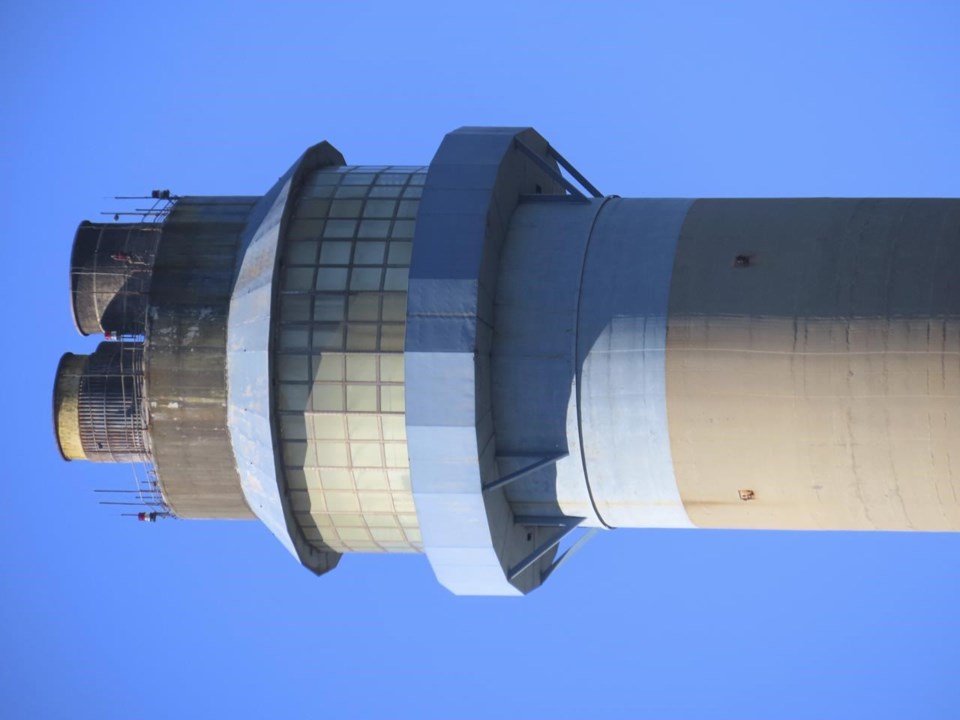UPPER TOWNSHIP, N.J. (AP) — For decades, tourists heading to the New Jersey beach resorts of Ocean City and Cape May saw the towering smokestack of the B.L. England Generating Station as they zipped past it on the Garden State Parkway.
The 463-foot-tall (141.1-meter) stack was a local landmark and even a weather forecaster for some residents who glanced outside to see which way emissions from its top were blowing, and how fast, as they decided what to wear for the day.
But the power plant, which burned coal and oil over the decades, closed in May 2019, a casualty of the global move away from burning fossil fuels.
And the smokestack, the last major remaining piece of the plant, was imploded Thursday morning, brought down by 350 pounds of explosives strategically placed by a demolition company known in the area for razing the former Trump Plaza casino in nearby Atlantic City in 2021.
At 10 a.m., as a crowd of over 100 onlookers watched from a nearby pier and additional spectators on at least 50 boats moored a safe distance away in the bay took in the spectacle, a loud boom rang out, followed by two smaller ones, and the stack quickly tilted away from the water and collapsed in a cloud of dust.
“Everything went as we had planned: it fell exactly the way we expected it to,” said Chad Parks, a spokesman for the property owner Beesley’s Point Development Group, a New York company that says it specializes in redeveloping “distressed” heavy industrial sites.
Two smaller structures, a gypsum silo and part of the former power plant, will be torn down using ground-based heavy equipment.
The demolition clears the way for the waterfront site on Great Egg Harbor Bay to enter its next role in providing energy to New Jerseyans: As the connection point for several of the state's planned offshore wind farms. It also will house a mixed use development likely to include a hotel, a marina, restaurants, shops and residential housing units.
Because the power plant already had connections to the electrical grid, much of the infrastructure to plug offshore wind into the power system already exists in a nearby substation, making it a logical site to bring the offshore wind power onshore.
A cable from the first such wind farm, to be built by energy company Orsted, will come ashore on a beach in Ocean City, run underground along a roadway right-of-way before re-entering the waters of the bay and finally connecting to the grid at the former B.L. England site.
That route, and the very existence of the project itself, has generated significant opposition from residents in Ocean City and other Jersey Shore communities, who are fighting them in court and in the court of public opinion.
The power plant opened in 1961. A cooling tower there was demolished in September 2022, and boilers at the site were demolished in April.
___
Follow Wayne Parry on X, formerly known as Twitter, at www.twitter.com/WayneParryAC
Wayne Parry, The Associated Press



